Abstract
Three pigeons were required to peck a single key at a higher and a lower rate, corresponding to two classes of shorter and longer concurrently reinforced interresponse times. Food reinforcers arranged by a single variable-interval schedule were randomly allocated to the two reinforced interresponse times. The absolute durations of reinforced interresponse times were varied while the total reinforcements per hour was held constant and the relative duration, i.e., the relative reciprocal, of the shorter reinforcer class was held constant at 0.70. Preference for the higher rate of responding, as measured by the relative frequency of responses terminating interresponse times in the shorter reinforced class, depended on the absolute reinforced response rates. Preference for the higher reinforced rate increased from a level of near-indifference (0.50) at high reinforced response rates, through the matching level (0.70) at intermediate reinforced response rates, to a virtually exclusive preference (>0.90) at low reinforced response rates. These results resemble corresponding preference functions obtained with two-key concurrent-chains schedules and thereby provide another sense in which it may be said that interresponse-time distributions from interval schedules estimate preference functions for the component response rates corresponding to different classes of reinforced interresponse times.
Full text
PDF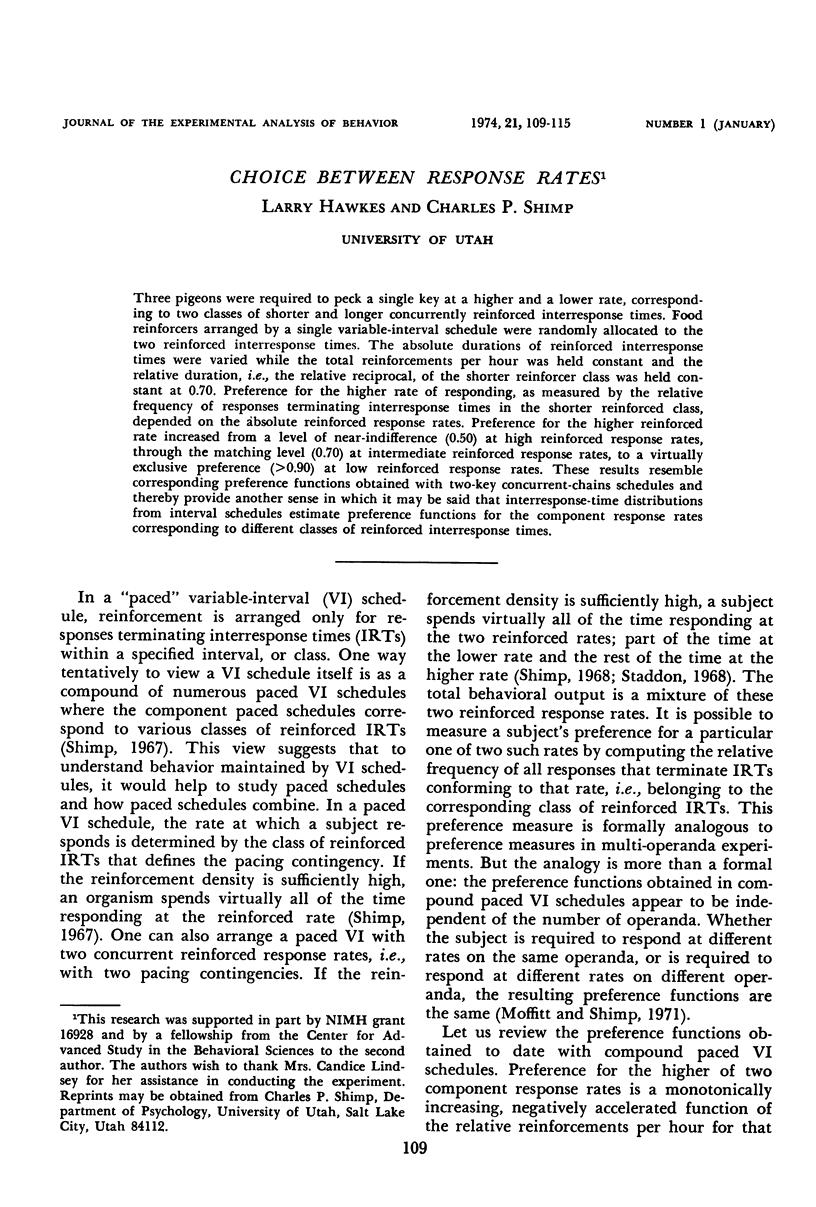
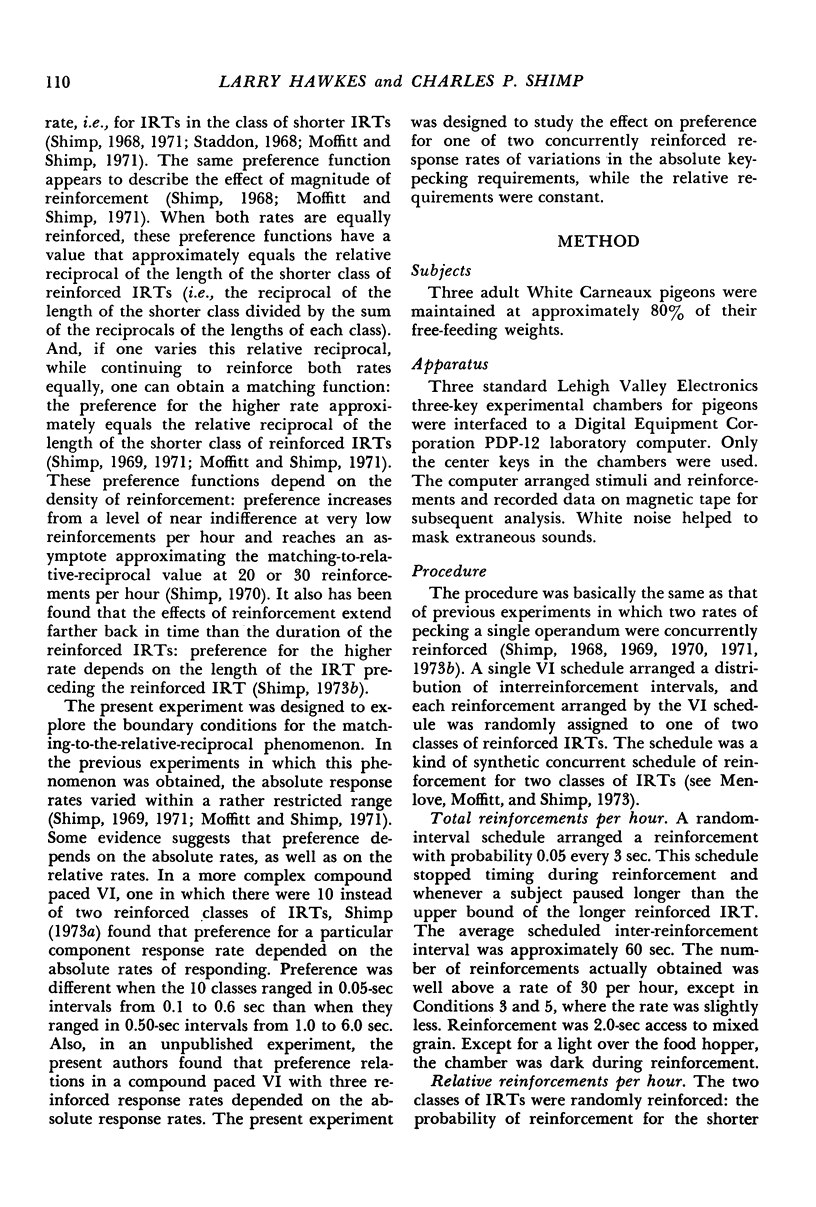
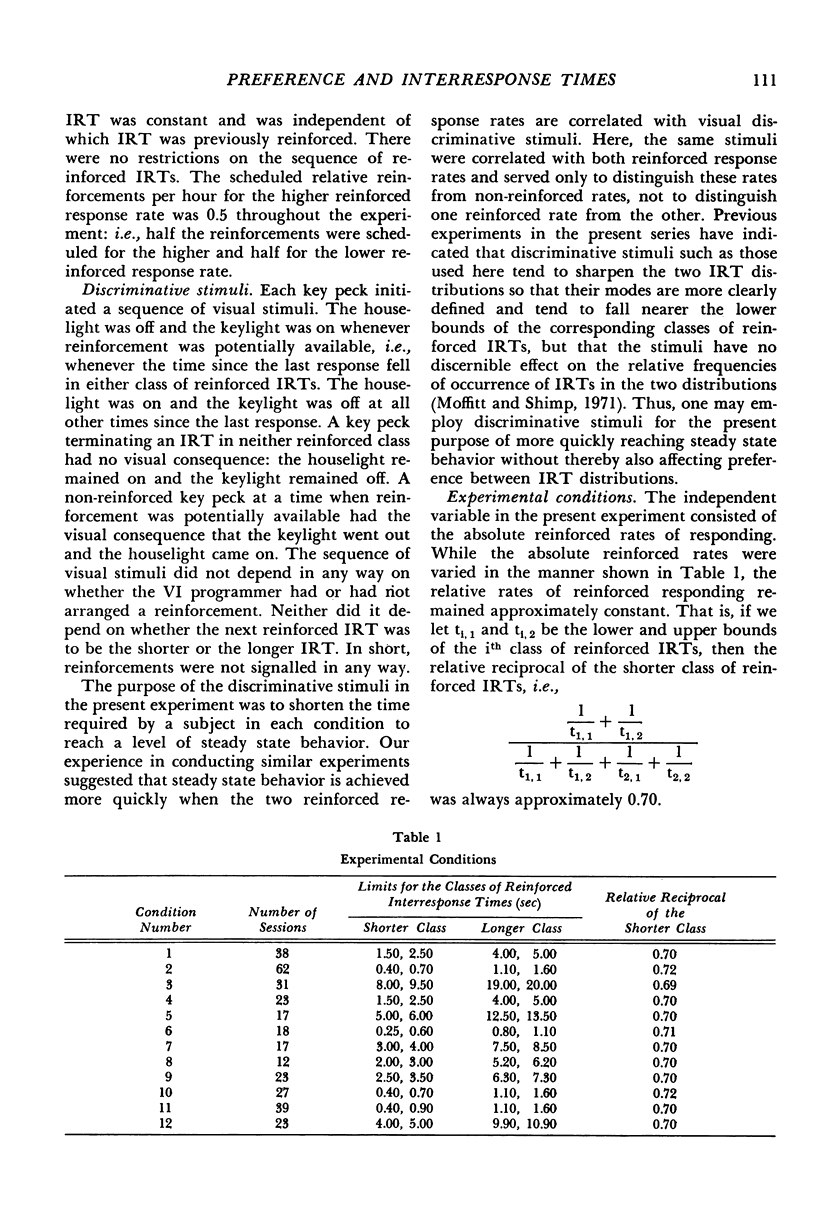
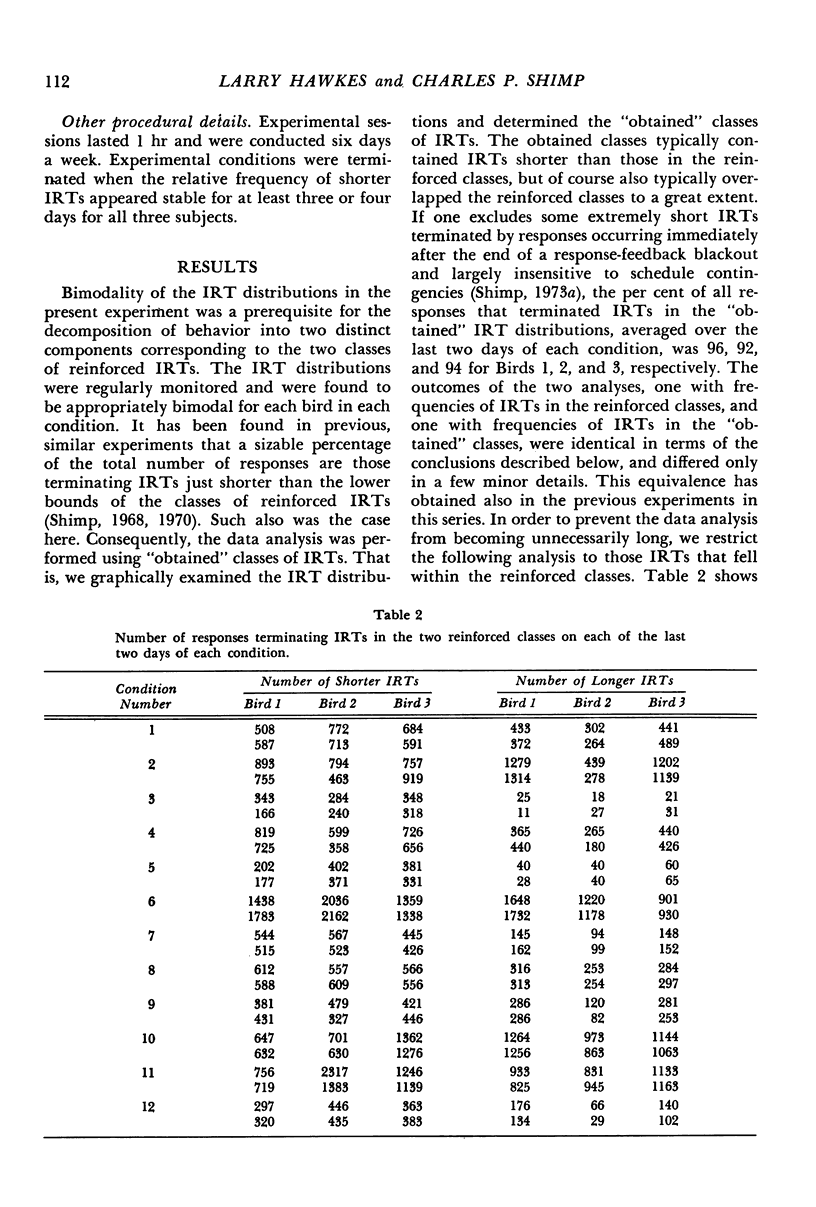
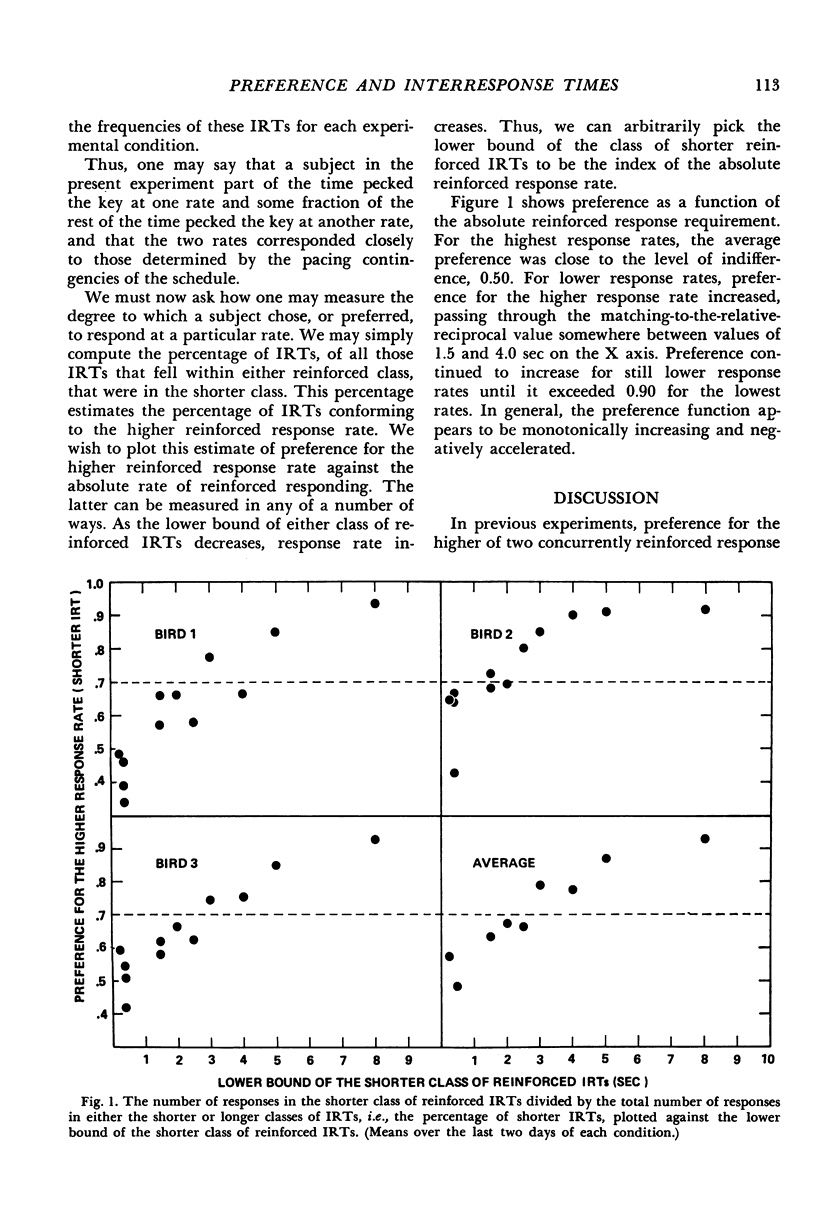
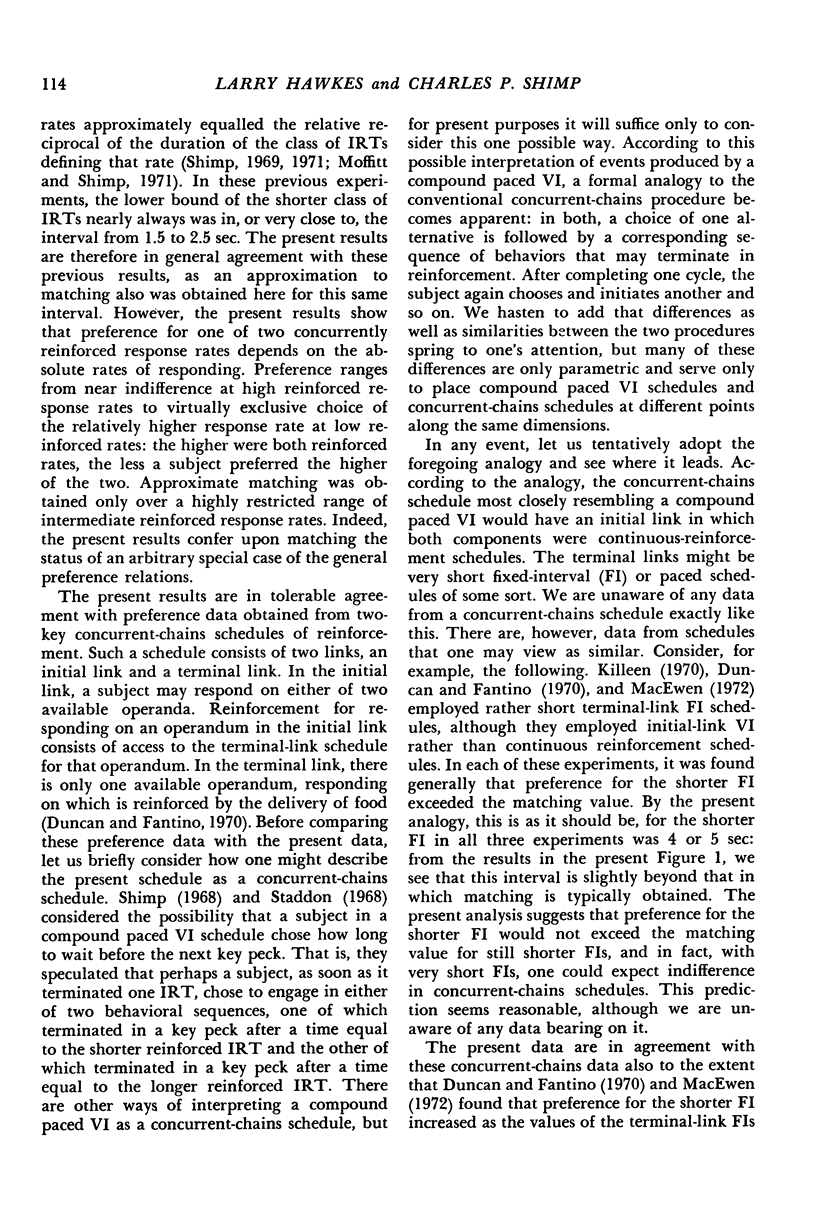
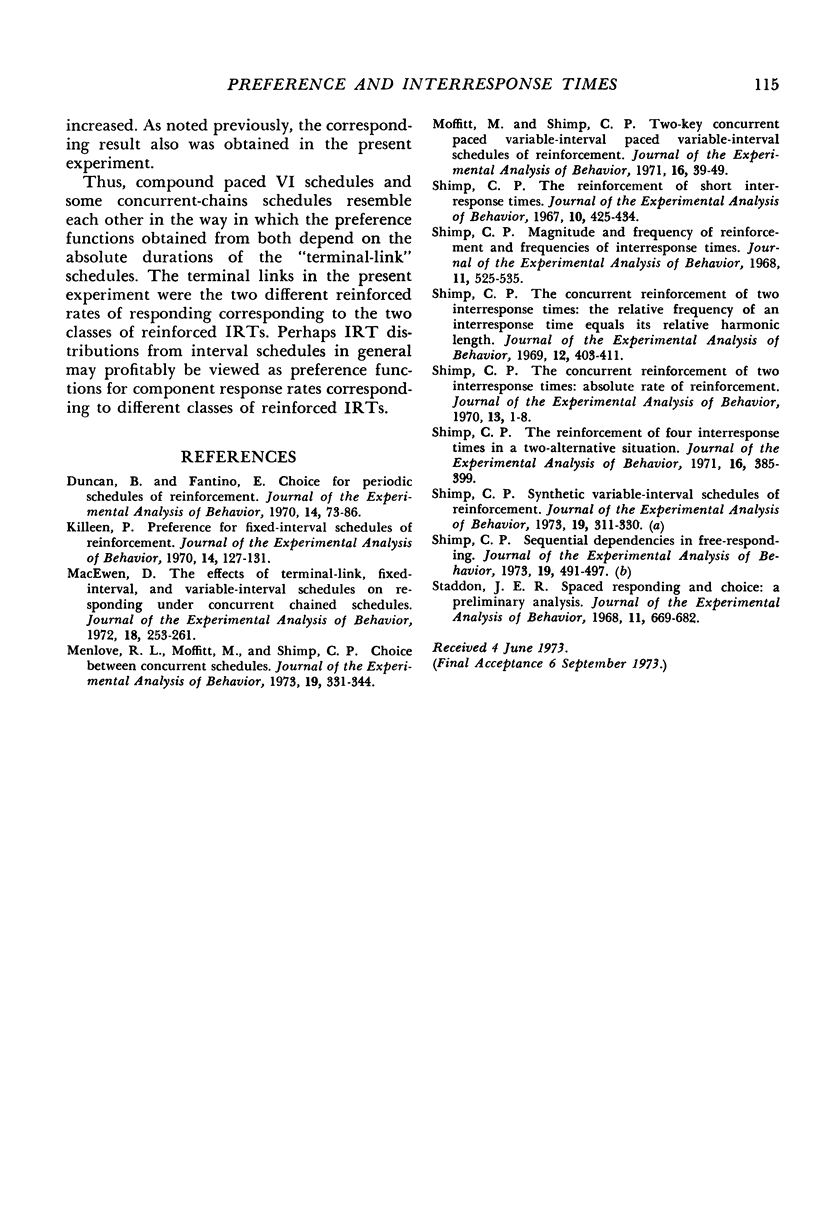
Selected References
These references are in PubMed. This may not be the complete list of references from this article.
- Duncan B., Fantino E. Choice for periodic schedules of reinforcement. J Exp Anal Behav. 1970 Jul;14(1):73–86. doi: 10.1901/jeab.1970.14-73. [DOI] [PMC free article] [PubMed] [Google Scholar]
- Killeen P. Preference for fixed-interval schedules of reinforcement. J Exp Anal Behav. 1970 Sep;14(2):127–131. doi: 10.1901/jeab.1970.14-127. [DOI] [PMC free article] [PubMed] [Google Scholar]
- Macewen D. The effects of terminal-link fixed-interval and variable-interval schedules on responding under concurrent chained schedules. J Exp Anal Behav. 1972 Sep;18(2):253–261. doi: 10.1901/jeab.1972.18-253. [DOI] [PMC free article] [PubMed] [Google Scholar]
- Menlove R. L., Moffitt M., Shimp C. P. Choice between concurrent schedules. J Exp Anal Behav. 1973 Mar;19(2):331–344. doi: 10.1901/jeab.1973.19-331. [DOI] [PMC free article] [PubMed] [Google Scholar]
- Moffitt M., Shimp C. P. Two-key concurrent paced variable-interval paced variable-interval schedules of reinforcement. J Exp Anal Behav. 1971 Jul;16(1):39–49. doi: 10.1901/jeab.1971.16-39. [DOI] [PMC free article] [PubMed] [Google Scholar]
- Shimp C. P. Magnitude and frequency of reinforcement and frequencies of interresponse times. J Exp Anal Behav. 1968 Sep;11(5):525–535. doi: 10.1901/jeab.1968.11-525. [DOI] [PMC free article] [PubMed] [Google Scholar]
- Shimp C. P. The concurrent reinforcement of two interresponse times: absolute rate of reinforcement. J Exp Anal Behav. 1970 Jan;13(1):1–8. doi: 10.1901/jeab.1970.13-1. [DOI] [PMC free article] [PubMed] [Google Scholar]
- Shimp C. P. The concurrent reinforcement of two interresponse times: the relative frequency of an interresponse time equals its relative harmonic length. J Exp Anal Behav. 1969 May;12(3):403–411. doi: 10.1901/jeab.1969.12-403. [DOI] [PMC free article] [PubMed] [Google Scholar]
- Shimp C. P. The reinforcement of four interresponse times in a two-alternative situation. J Exp Anal Behav. 1971 Nov;16(3):385–399. doi: 10.1901/jeab.1971.16-385. [DOI] [PMC free article] [PubMed] [Google Scholar]
- Shimp C. P. The reinforcement of short interresponse times. J Exp Anal Behav. 1967 Sep;10(5):425–434. doi: 10.1901/jeab.1967.10-425. [DOI] [PMC free article] [PubMed] [Google Scholar]
- Staddon J. E. Spaced responding and choice: a preliminary analysis. J Exp Anal Behav. 1968 Nov;11(6):669–682. doi: 10.1901/jeab.1968.11-669. [DOI] [PMC free article] [PubMed] [Google Scholar]


